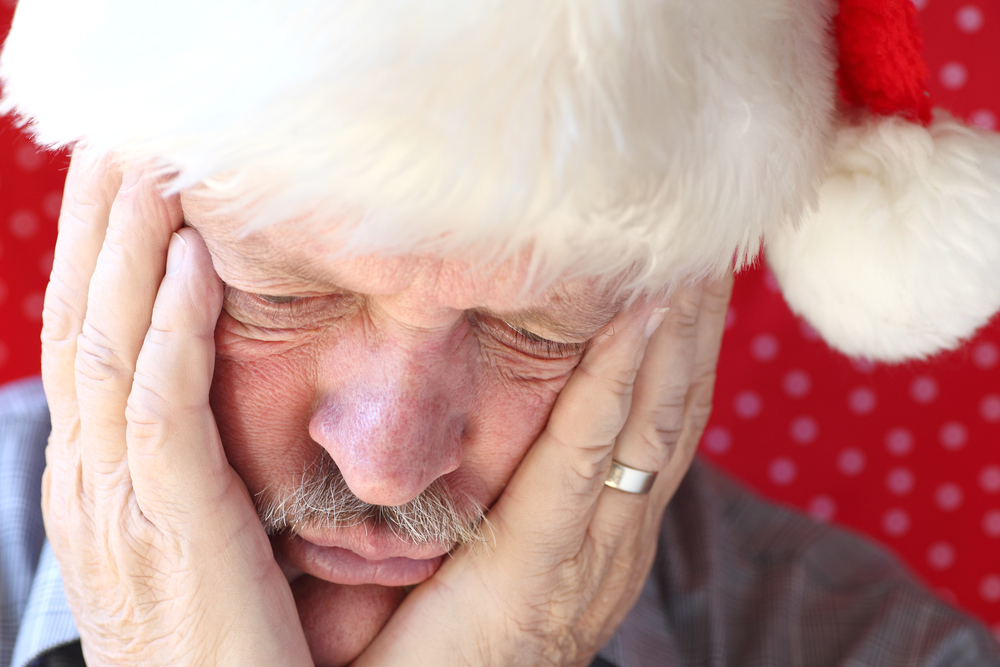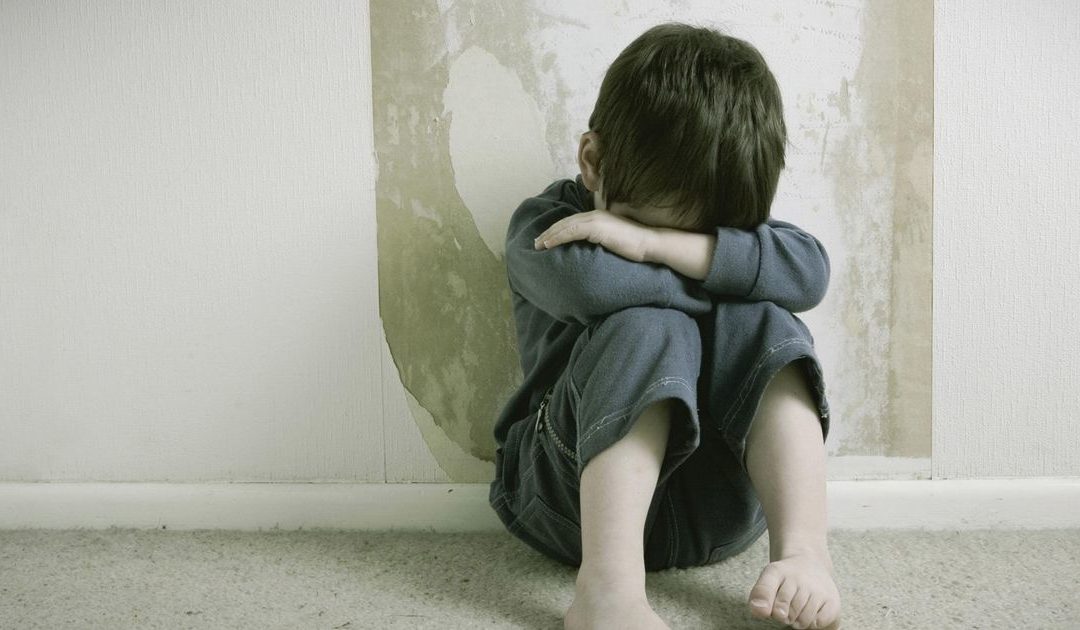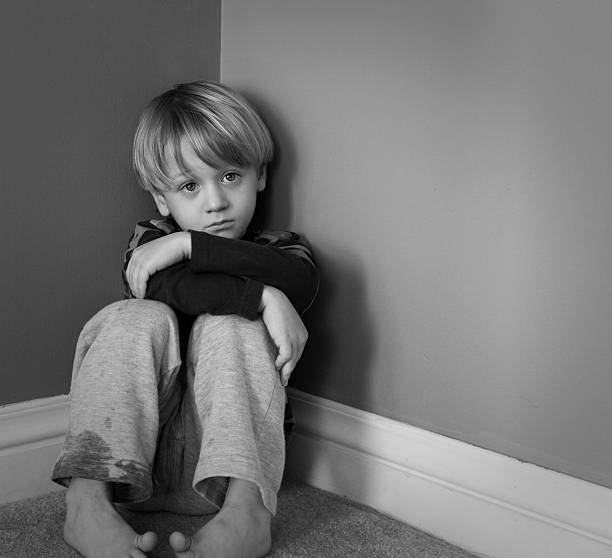
Football, Friendship & Men’s Mental Health
|

|

It’s a myth that suicide is more typical around special occasions like the holidays (springtime is really the pinnacle). Be that as it may, seasonal happiness isn’t a given either. High desires, cash misfortunes, and other occasion risks can spell inconvenience for anybody, yet particularly those inclined to depression. With a touch of foresight and planning, you can feel better about the holidays.
Invest some energy in making sense of how to deal with your-self amid this time. Restore routines schedules, for example, reading a book or snoozing, and think of them on a timetable, ensure these schedules don’t fall by the wayside. Figure out what activities will enable you to get past and through the holidays and make them a priority in your day.

There are a couple approaches to spare your mental soundness at family social events, On the off chance that you know there will be clashes, set up a neutral response, for example, “How about we discuss that some other time,” or, “I can see how you would feel that way.” Then escape to the restroom, offer to help in the kitchen, or run hang out time with the children. What’s more, it always helps to calls a good friend in the event that you need extra coaching.
The Holidays bring out the perfectionists in all of us, the perfect tree, lights and décor don’t have to be so perfect. Remember the spirit of the season, a warm and cozy place filled with love and family. Limit your stress levels when it comes to the holidays, pace yourself; and do a little each day making a schedule of the entire project. Enlist the help of friends, family, and passersby to join in on the bright and cheery atmosphere you have created.

In the event that you are grieving a friend or family member during the holiday season, it’s a good time to discuss your feelings with a therapist or join a support group. We all handle loss so differently, perhaps joining friends for an outing, quiet reflection, or a yearly tradition to honor that person might help to ease the pain. Whatever you choose it’s normal to feel loss; feelings are a sign that you’re human and reflect where you are in your healing process.
With the holidays being jam packed of activities, friends, parties, and prep time, you’ll want to schedule much needed rest. Set a time for sleep each night and stick to your schedule getting 8 restful hours of uninterrupted sleep. Calm your mind and rest your body for each succeeding day to come, they will get busier. If you are one of the millions that have trouble sleeping try Chamomile Tea; read a good book by the fireplace, or watch a movie you’ve seen many times, anything to relax your body and mind to fall off to sleep.
Help comes in many forms, a friend, family member or a therapist, but if you are experiencing feeling of dread or hopelessness during the holidays seek out help. Look at it as a mission to find, conquer, and overcome anxiety or depression. This many not be the typical “Christmas Blues” but rather a problem that the holidays accentuate. Talking it out really does help.

Exercise—one of the first activities to get lost in the holiday shuffle—should be placed high on your to-do list.” The more stress we are under, the less time we feel like we have, and the more irritated our mood, the more we need to continue exercising,”. “Get out and do something; it helps use those calories from rich, fatty, sugary holiday foods.” Exercise has been shown to improve mood. Taking a brisk walk for 35 minutes five days a week (or 60 minutes three times a week) can do the trick.
If you are consistently tired, irritable, and down at this time of year, it may not be due to the holidays as much as to the lack of exposure to the sun. Seasonal affective disorder, or SAD, can be treated by long walks during daylight hours or exposure to a light box for about 30 minutes a day. If you think you may be suffering from SAD, talk to your doctor about treatment options.
The holidays shouldn’t be all about the presents, but financial woes can make it easy to lose sight of that. Rein in the stress (and cost) by organizing a gift exchange with friends or family. You can also bake your gifts, or create traditions such as having a large potluck meal followed by a walk outside or board games by the fire.” I think saying no is more of a relief instead of stretching and spending more than you have and still not doing enough,”.

For some, overindulgence is as much of a holiday tradition as opening gifts. I recommend more restraint. Have one piece of pie, not three. Apart from being unhealthy for your body, you will feel guilty afterward. Try preparing for holiday dinners by eating healthy meals the week prior. And don’t use alcohol to deal with holiday depression. Alcohol can intensify your emotions and leave you feeling worse when it wears off.
If you feel like you just can’t get through one more holiday gathering, it’s OK to sit them out. One of the things about holiday stress we forget is that between Thanksgiving and Christmas make time for yourself to decompress and have some “Me time”.

Steven, the VP operations of a media company, was asked to present on the organization’s digital transformation program to its top 100 executives during an annual strategy retreat. As public presentations had never been his forte, Steven spent an extraordinary amount of time preparing for the event. But despite these preparations, he blanked out when it was his turn to speak. His presentation was so bumbling and confused that Steven couldn’t bear to go into work the next day…or the next one after that. The complex set of emotions that Steven was feeling have a simple name: shame.

Given the way we react to shame, it shouldn’t come as a surprise that the roots of the word derive from an older Proto-Indo-European word meaning “to cover.” To feel ashamed brings up associations of wanting to hide our faces behind our hands, desperate desiring to run away, or even hoping the earth will swallow us up. At the heart of feeling ashamed is a feeling that we are exposed — either to others or to ourselves. No other feeling is more disturbing or destructive to the self.
After a major mistake, it’s natural to feel ashamed. And yet calling in sick like Steven did is not the answer. Instead, you need to understand the feeling and find a way to let it go.
People who pathologically feel shame tend to internalize and overpersonalize everything that happens to them. They cannot see things in perspective. When something goes wrong, they say to themselves, “I’m to blame for what happened. It’s entirely my fault.” Not only do they demean themselves, but they also feel helpless, and don’t think that there’s anything they can do to change the situation. The internal critic in their heads continually judges and criticizes them, telling them that they are inadequate, inferior, or worthless.
This can have a profound effect on our psychological well-being. Excessive feelings of shame are at the heart of much psychopathology. It is concealed behind guilt; it lurks behind anger; it can be disguised as despair and depression. As people rarely talk about shame experiences, shame is a difficult emotion to detect, especially as it comes in so many disguises.
attacking the self or attacking others. Initially during a shame experience, hostility is directed inward, toward the self (“I’m worthless,” “I’ve never been any good”). Some people, like Steven, go as far as withdrawing from the real world. But in an attempt to feel better about what is experienced as shameful, some people lash out and blame others, showing reactions of avoidance, defensiveness, and denial. Others try to compensate for feelings of shame or unworthiness by attempting to be exceptionally giving; by pleasing others, they hope to improve their feelings of self-worth. Although these various scripts can temporarily help the person feel less ashamed, ultimately they can make matters worse. Without addressing the source of shame, a self-reinforcing negative feedback loop isenacted, through which shame chisels into the core of who the person is.

Given the pervasiveness of this emotion across ages and cultures, what’s the adaptive purpose of shame? From an evolutionary point of view, we could hypothesize that shame has evolved under conditions where survival depended on people abiding by certain norms. They needed to band together to effectively operate as a group to better deal with the terrifying forces of nature. In Paleolithic times, shame would have been the way to establish a group’s pecking order to create the best way of cooperation. It would be an effective mechanism to establish clear dominance-submission rankings. Interestingly, these derivatives of early animalistic behavior patterns can still be observed today when we tend to take a compliant posture out of shame, when we subject ourselves to the power and judgment of others.
From a psychological developmental point of view, shame can be seen as a complex emotional response that humans acquire during early child rearing, when children are completely dependent on the bond with their caregivers. It is a very basic emotion: Children seek to live up to their parent’s expectations, and failing to do so, experience shame. Toddlers exhibit early feelings of embarrassment that can turn into full-blown shame within their first three years of life.
Shame can ultimately serve a purpose if it means that, for example, a toddler feels ashamed after being scolded for running into traffic. Because toddlers’ brains aren’t sophisticated enough to understand that traffic is dangerous, the feeling of shame is enough to keep them from endangering themselves again. But shame is also a horrible feeling. Children who are continually criticized, severely punished, neglected, abandoned, or in other ways mistreated quickly get the message that they are inadequate, inferior, or unworthy. These shameful experiences damage the roots from which self-esteem grows. Such dysfunctional parenting styles can make children shame-bound. This kind of shame is very difficult to overcome. The formative wounds of childhood — scars from being teased, bullied, or ostracized by parents, peers, and others — can become fixed in our identity.
The more powerful our experience of shame, the more we feel compelled to hide those aspects from others, and even from ourselves. The first step is thus to bring to light whatever is seen as shameful. After all, a wound that’s never exposed will never heal. If the wound is deep enough, you may need to ask a counselor or therapist for help. Being able to discover the origins of shame-like experiences will set the stage of having greater control over your life as you become attuned to what triggers these shame reactions.
A second step is to cultivate self-compassion — to embrace who you are and treat yourself in the same respectful, empathetic way you’d treat others. For example, if one of Steven’s friends or direct reports had bombed their presentation, he would have been supportive. “You tried hard, but you let your nerves get the better of you,” he might have said, or “You’ll get better with more practice. Let’s hire a public speaking coach.” When you’re feeling shame, ask yourself: Would I talk to a friend the way I’m talking to myself right now? This question can help you recognize when a negative thought spiral is getting the upper hand, and can challenge your shame-based thinking.
Engaging in these corrective emotional experiences (as they are known in psychology) can help you improve your sense of self-esteem, increase your feelings of worthiness and belonging, foster greater self-acceptance, and reduce unhealthy reactions to shame, such as withdrawal and counterattack.
Shame is part of the human experience. Keeping your feelings of shame in perspective can relieve you of a harmful tendency to self-blame, and, eventually, make peace with your shadow side. Knowing that you are good enough, worthwhile, and deserving of love and acceptance is essential for building resilience and living your most authentic life.
Source: Harvard Business Review: https://hbr.org/2017/06/dont-let-shame-become-a-self-destructive-spiral

‘Talking to a child who has lost a parent is particularly difficult, and heartbreaking.’ Photograph: Alastair Grant/AP
My mother died when I was 10. Writing about it after decades of silence, I see now how important it is to discuss bereavement
If you are looking for guided imagery visualization scripts (beach, meadow, or other peaceful place), check out some great visualizations we discovered that are Free to download from http://www.innerhealthstudio.com/.
If you enjoy these relaxation scripts, subscribe to Relaxation by Inner Health Studio podcast to hear scripts like these as a new relaxation download each week.
**************************************************************
Please Note:
Use relaxation audio and videos wisely. Do not watch or listen to relaxation materials while you need to be fully awake and alert (for example, when driving). Obviously this can be dangerous. Please use relaxation sessions only when safe to do so.
**************************************************************
Try out these guided imagery relaxation scripts:
Body Image Relaxation
This body image relaxation script is a guided meditation focused on self-acceptance and self-image.
Relaxation to Deal with Anger
This guided relaxation script describes how to deal with anger quickly and effectively in the moment. Guides you in controlling anger in a healthy, productive way.
Self-Esteem Relaxation
Relax with affirmations, meditation, visualization and deep breathing. This self-esteem relaxation can be used to promote positive self-image and help you fall asleep in a positive frame of mind.
Healing Relaxation
This healing relaxation begins with passive progressive muscle relaxation, and then guides you to imagine your body healing itself.
Learn an Instrument Meditation
Feeling relaxed and confident can help you learn an instrument or other new skill more easily. This meditation aims to help increase confidence and motivation when learning to play an instrument.
Public Speaking Visualization
This public speaking visualization is a guided imagery script uses visualization to allow you to imagine yourself calmly and successfully speaking in public.
Overcoming Shyness
This relaxation script is for overcoming shyness. Use guided imagery, affirmations, and visualization to foster a sense of self-confidence and help decrease social anxiety.
Guided Imagery for Writing an Exam
This guided imagery script will allow you to visualize the process of studying for and writing an exam. Visualizing success will promote increased confidence, concentration, and memory. Relaxation can also improve the ability to learn by eliminating some of the anxiety that interferes with taking in new information.
Get Rid of Nightmares
Many people experience night terrors and struggle with how to get rid of nightmares. This relaxation script uses guided imagery and visualization to help return your mind to a peaceful, restful state free of fear after experiencing a nightmare.
Coping with Flashbacks Relaxation
This relaxation script is for coping with flashbacks. It can be used in the moment to help you to get through the experience and to help re-focus your mind on peaceful images.
Headache Relief
Relaxation is effective in providing relief from headaches. This relaxation for headache relief script will describe ways to cope with and reduce headache pain.
Relaxation for Work Commitments Stress
This script is for decreasing the stress caused by work commitments. Listening to this relaxation audio right before bed can be effective to help you put thoughts of work aside so you can get to sleep.
Relaxation for Obsessive Thoughts
This relaxation for obsessive thoughts can help with obsessive compulsive disorder and other anxiety disorders that involve worrying, obsessions, compulsions, or rumination.
Decrease Fidgeting Relaxation Script
This relaxation script will help you to decrease fidgeting with your hands. This exercise will allow you to reduce anxiety to create a feeling of calm and be still, even when faced with stress.
Finding Your Authentic Self
Explore your values and connect with your authentic self. Use this relaxation technique to get in touch with your true self, live up to your full potential, and live according to your true identity.
Relaxation to Deal with Loneliness
This relaxation script is to deal with loneliness by increasing confidence, developing a strong sense of self, and getting ready to take action to decrease loneliness.
Panic Attacks when Flying Relaxation Script
Air travel can be stressful. Most people experience at least some anxiety in airports or on planes, but for some, flying causes panic attacks. This relaxation is for panic attacks when flying.
Overcoming procrastination
This relaxation script is for overcoming procrastination by dealing with some of the causes of this behavior and increasing motivation to deal with the things on your to do list.
Deal with Squeamishness
Squeamishness is a feeling of discomfort, disgust, and anxiety. This guided imagery script will help you in your mind to face phobias or anxiety-provoking situations and deal with squeamishness.
Overcoming Freeze Response
Freeze is a common response to fear, especially in life-threatening situations that are difficult to escape. This relaxation script uses grounding techniques to help you decrease panic symptoms.
Decreasing Self Harm Behavior
This relaxation script is for teens or adults with self harm behavior or nervous rituals and aims to create a feeling of calm and then explore more positive coping alternatives.
Dealing with Grief
This relaxation script is for dealing with grief and loss. This guided relaxation will help to normalize the grief experience and explain the stages of grief.
Meditation for Acting
This guided meditation for acting helps you, as an actor, to focus on getting into the character’s state of mind, understand the character you are playing, and act effectively.
Calming Down from Good News
This relaxation script is for calming down from good news. It will help you achieve a state of calm so you can focus or sleep as needed.
Music Imagery
This music imagery story was written by Diana. It is a mystical story that uses pretty words and music to help to get rid of phobias, specifically, the fear of needles.
Dealing with Rejection or Failure
Our own self-talk can contribute to the pain and low self-esteem that is sometimes associated with rejection or failure. This relaxation script will help you to identify and change upsetting thoughts.
Timed Stim Breaks
This timed stim breaks script will guide you to use stimming for three minutes, then do other behaviors for three minutes. You can use this exercise for “stim breaks” you can schedule through the day.
Autism Relaxation to Decrease Stimming
This autism relaxation script is for helping to decrease stimming. Stims are repetitive behaviors that stimulate the senses, and are used to regulate one’s level of sensory arousal.
Relaxation to Stop Biting the Inside of the Mouth
This relaxation script will help you to stop biting the inside of the mouth. This behavior is a common problem that can occur with boredom, stress, anxiety, or simply out of habit.
Relaxation for Positive Self-Image
This relaxation for positive self image helps to increase positive thinking, healthy self-concept, confidence, and self-esteem.
Martial Arts Training Guided Imagery for Kickboxing or Muay Thai
Guided mental rehearsal of various punching and kicking techniques for martial arts training to help prepare for Kickboxing or Muay Thai martial arts competition.
Martial Arts Competition Guided Imagery for Kickboxing or Muay Thai
This guided imagery script involves mental rehearsal to prepare for martial arts competition in kickboxing or Muay Thai, become comfortable with combinations, and increase confidence.
Dealing with Seasonal Affective Disorder
This relaxation script is to help you deal with seasonal affective disorder or seasonal blues. Review some quick ways to help improve mood naturally and use guided imagery to improve mood.
Relaxation During Pregnancy
Relaxation during pregnancy is safe and effective for reducing stress, feeling calm, and increasing physical and mental comfort. Use relaxation techniques to get rid of nausea, headaches, and minor pain without taking medications.
Relaxation for Asthma
This relaxation for asthma script will help to calm breathing, reduce muscle tension in the chest and throat, and get though an asthma attack. This relaxation script is also effective for anxiety symptoms that cause breathing difficulty.
Dealing with Food Sensitivities Relaxation Script
This relaxation is for dealing with food sensitivities. Improve immune function and achieve a calmer state when experiencing allergies, immune reactions, or intolerance to foods or other substances.
Professional Distance and Empathy
This guided imagery script will help you to envision maintaining both professional distance and empathy. Enhance your ability to maintain appropriate boundaries at work with empathy and understanding.
Relaxation for Pain Relief
Relaxation of any type is effective for pain management. People who do relaxation exercises are better able to tolerate pain, AND they actually feel less pain. In other words, relaxation exercises can take at least some of your pain away, and make the pain you do have a little easier to tolerate.
Relaxation to Stop Blushing
Blushing is a redness of the cheeks and face that can be caused by anxiety, stress, nervousness, exercise, or embarrassment. This relaxation script will help to stop blushing now and in the future.
Stop Guilt When Not Busy
Many people find it difficult to relax because they feel guilty when they are not busy. Use this guided imagery script to overcome the constant pressure to be busy and the guilt and restlessness interfere with relaxing.
Relaxation for Dealing with Chemotherapy
This guided imagery script is for dealing with chemotherapy. Relaxation can help improve immune system function, reduce pain, and decrease stress to have an overall positive impact on healing.
Adults Recovering from Childhood Bullying
Guided imagery meditation script for adults recovering from childhood bullying. Involves affirmations to change the negative self-concept and self esteem problems associated with past bullying.
Becoming More Playful
This guided imagery script is for becoming more playful. It begins by guiding you to relax your mind, and then use visualization, meditation, and guided imagery to get in touch with your inner playfulness.
Death and taxes, as the saying goes, are the only certainties in life. So why then is one of these things still so hard to talk about? Not taxes, that’s just zzzzz, but death. Always death.
As inevitable as dying may be, talking about mortality remains taboo. How strange this is when it affects us all – not just our own deaths of course, but those of our loved ones, as shown by Prince Harry’s recent admission that he regrets not talking sooner about how his mother’s death affected him.
Harry was 12 when Diana, Princess of Wales, died. At 31, he was hosting an event at Kensington Palace for the mental health charity Heads Together when he admitted that he only began opening up about her sudden death three years ago. That’s a lot of years of sweeping a defining life event under the carpet.
I was 10 when my mother, Jane, died in 1985. And it has taken me all this time to open up about it. Last year, I wrote a piece for the Guardian’s A Moment that Changed Me series about her death. I had recently started a new relationship, and my boyfriend asked me what had happened. I realised I had never really talked about it before, and that I needed to.
The piece struck a chord. In the first few days alone it had more than 225,000 views online. I had comments from readers all over the world – and not just in the comments thread beneath the piece, but from strangers who tracked me down via social media.
Even now, a year later, people I know vaguely come up to me and say they have read the piece, and that they were moved, or that they too have been bereaved. Maybe it was their father, their sister or their friend – but they have been bereft, broken and lost, and they too have rebuilt themselves, and their lives. The message is clear – this is a universal feeling.
And even if you have never been bereaved, have rarely contemplated your own mortality or that of your nearest and dearest, talking about death can be liberating. An old school friend got in touch after I wrote the article. To think that I was going through all of that at school, she said. She didn’t have an inkling. How could she? My new life had begun and I was not to look back on my old one. This was the message that resonated throughout the rest of my childhood.
After my mother’s death, I was looked after by a friend of hers, who had three older children – two were young adults, aged 20 and 18. They didn’t understand how a 10-year-old could be grieving. On the first Mother’s Day that rolled around – less than four months after she died – they pressured me into giving my new foster mother a card. “She’s done a lot for you,” they said. How could I possibly say this woman wasn’t my mother? That I had but one mother, and that she was dead. I was a shy child. I kept my mouth shut and handed over a card. They did not mean to be cruel. They were protective of their own mother. And I am sure they genuinely did not know how I was feeling, or think to talk to me about it.
I understand. Talking to a child who has lost a parent is particularly difficult, and heartbreaking. But bereaved children are not rare. The charity Child Bereavement UK estimates that 23,600 parents of children under 18 die every year, and that one in 29 children has lost a parent or a sibling – that’s one child in every class.
There’s a mistaken idea that children forget, and that they adapt. Yes children can be resilient and adaptable – as can adults. But children grieve. We need to acknowledge this, and learn how to talk about death.
It has taken me 30 years to realise that my story isn’t over – and that talking about my mother’s death doesn’t mean I am stuck in the past, but that I am moving forward. I have started writing about her more, and about the multifaceted aspects of bereavement. And because of this opening up, not only have strangers been in touch, but also people who knew my mother. I have even met some of them – a moving, strange and surreal experience. So I will continue to talk about death, to open up, to throw off my Britishness, because it feels right. And you should too.